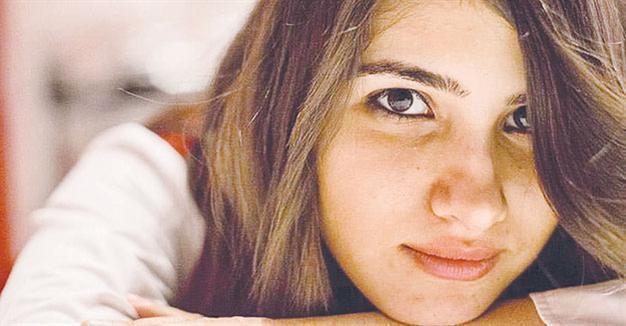Village refuses to bury rapist killed in prison
ADANA/MERSİN – Anadolu Agency
 Attempts to inter Ahmet Suphi Altındöken, the convicted felon in the brutal rape and killing of 20-year-old-student Özgecan Aslan in February 2015, have precipitated a crisis after village residents locked the doors of their cemetery and refused to bury Altındöken’s body.
Attempts to inter Ahmet Suphi Altındöken, the convicted felon in the brutal rape and killing of 20-year-old-student Özgecan Aslan in February 2015, have precipitated a crisis after village residents locked the doors of their cemetery and refused to bury Altındöken’s body. Altındöken was shot dead with a gun brought into the high-security prison by the wife of one of the suspects, Hüsamettin Bağlar, allegedly with the help of prison guard Hacı Ahmet Özdoğan.
Altındöken’s father Necmettin Altındöken, 50, was heavily wounded in the southern province of Adana on April 11.
The suspect, Gültekin Alan, went to Altındökens’ cell and shot both of them while another suspect, Ferhat Yüksel, distracted a nearby prison guardian, Doğan News Agency reported.
The gun was reportedly smuggled in return for Alan “supplying” women employees for Özdoğan’s nightclub on the outside.
“If they bury his corpse here, I’ll take it out with a digger,” Rifat Öcalan, the head of the Kocaköy village, said April 12.
“We don’t want it. They [Altındöken family] doesn’t have any connection to here. Even their grandfathers didn’t reside here. It didn’t occur to us that the dead body would be brought here. We thought it would be buried in the cemetery for the nameless. No one will accept the body. If we took it, then they would be burying us with it,” Öcalan told Anadolu Agency, adding that if a place to bury Altındöken is not found, then it could be used as a cadaver for medical research.
The gendarmerie took precautions in the village to prevent possible incidents stemming from the villagers’ anger.
Speaking about the burial crisis, Aslan’s father, Mehmet Aslan, said the dead body should be buried due to religious considerations.
“It doesn’t necessarily need to be buried in a cemetery, but after all it needs to be under the soil. I don’t know how they will find a solution,” said Aslan, adding that it could be buried in an unknown place, without a tombstone.
Altındöken’s body was sent to Tarsus via a car that was rented by his relatives, where they were told that the cemetery was full by officials. The body was then sent back to Adana under police supervision, where it was placed in the morgue of Adana State Hospital.
Altındöken’s mother, Naciye Tan, experienced a nervous breakdown in front of the hospital, criticizing the refusal to give her son a burial.
“No one accepts the dead body. Should I throw it out on the street? I’m a mother. Give me a car, I’ll take it,” Tan said.
Meanwhile, Justice Minister Bekir Bozdağ said an official from the prison was detained for allegedly permitting the gun inside the prison. “Three officials have been suspended,” Bozdağ added.
“There are people inside and outside helping the official. There are detentions concerning them, too. The investigation into the case is continuing,” Bozdağ said.
The suspects involved in the killing of Altındöken, who are identified as Gültekin Alan, Ferhat Y., Hüsamettin B., Gamze B., Hacı Ahmet Ö. and Ahmet Tekin Baykal, were taken to the Adana courthouse in order to give their testimonies, reported Doğan News Agency.
The case was subjected to a confidentiality order on April 13.
The Tarsus 1st Criminal Court for Serious Crimes ordered Necmittin Altındöken, Suphi Altındöken and his friend Fatih Gökçe, 20, to each serve life in jail with no possible reduction in the length of their sentences on Dec. 3, 2015.
Aslan was a college student studying psychology when she was killed in February 2015 when she boarded Suphi Altındöken’s minibus to return home to Mersin. Her burned body was found in a riverbed in Tarsus two days after her parents filed a missing person report with the police.
As the search for the missing student was ongoing, gendarmerie forces stopped a suspicious minibus on Feb. 12, 2015, discovering blood stains and a hat inside. The two Altındökens and Gökçe were detained after the victim’s father identified Aslan’s hat inside the minibus.
The killing of Aslan drew outrage across Turkey and led to widespread protests against the killing in particular and violence against women in general.
















